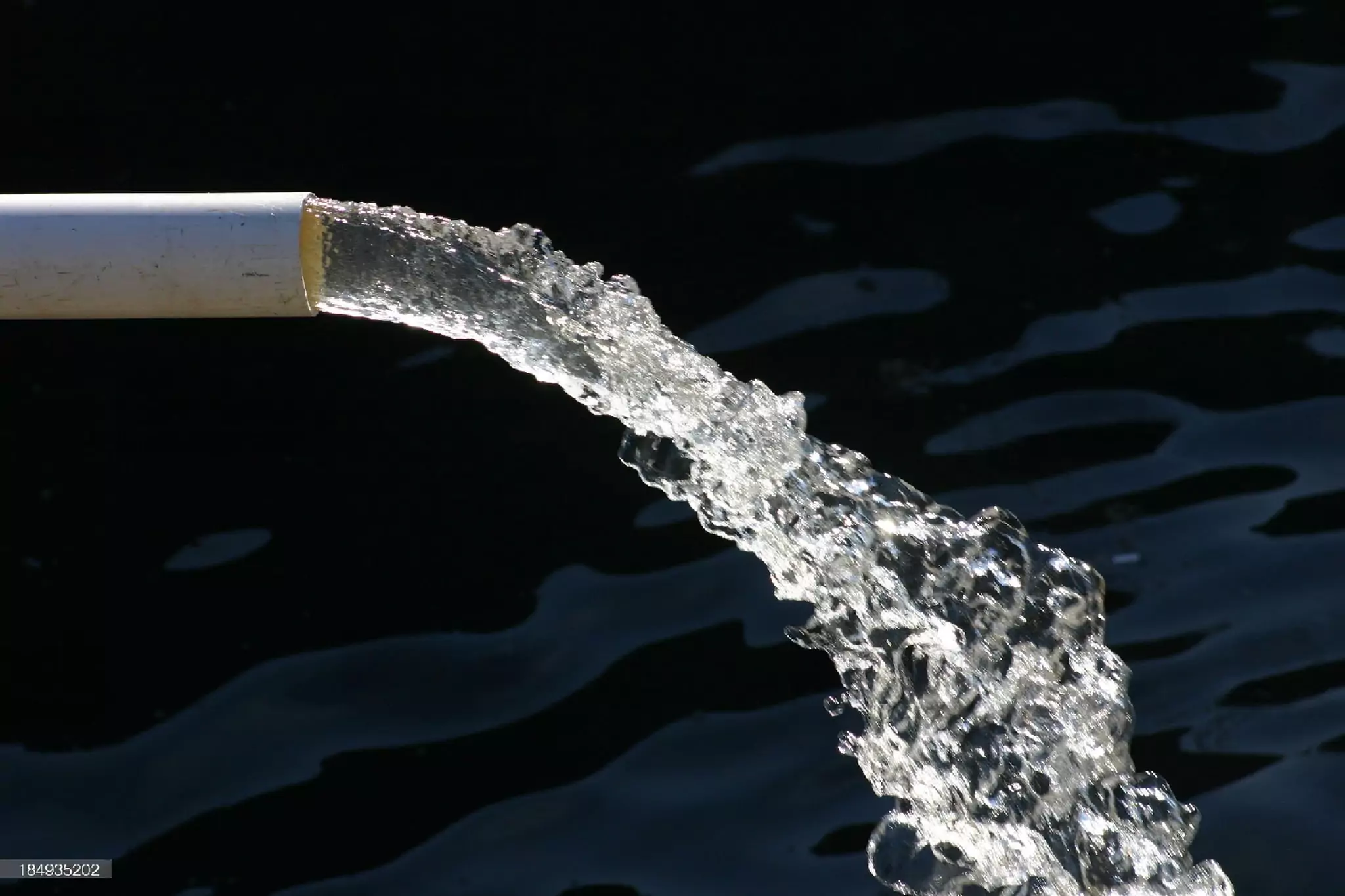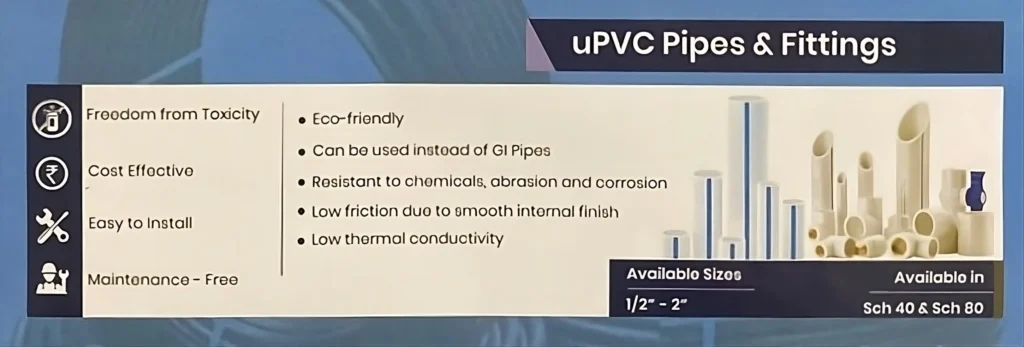uPVC Pipes
Hindpipe UPVC pipes and fittings are a type of plastic piping system designed for various plumbing and water distribution applications. UPVC stands for Unplasticized Polyvinyl Chloride, which is a rigid and durable material known for its strength and chemical resistance.

Features Of uPVC
- Material Composition
- Corrosion Resistance
- Durability
- Lightweight
- Smooth Interior
- Easy Installation
- Chemical Resistance
- Thermal Insulation
- Cost-effective
- Environmental Considerations

UPVC pipes are versatile and widely used in various applications due to their excellent properties. Here are some common uses of UPVC pipes:
Plumbing systems: UPVC pipes are extensively used in plumbing systems for the distribution of potable water. They are suitable for both indoor and outdoor plumbing, providing a reliable and durable solution for transporting water from the source to various fixtures.
Drainage and sewage systems: UPVC pipes are ideal for drainage and sewage systems due to their excellent chemical resistance and smooth inner surface. They effectively transport wastewater, sewage, and stormwater, preventing clogs and ensuring efficient drainage.
Irrigation systems: UPVC pipes are commonly used in agricultural and landscape irrigation systems. They can withstand exposure to UV rays, chemicals, and moisture, making them a reliable choice for transporting water to crops, gardens, and lawns.
Ventilation and ducting: UPVC pipes are suitable for ventilation and ducting systems. They are used to exhaust air, fumes, and gases from various applications, such as bathrooms, kitchens, and industrial facilities.
Electrical conduit systems: UPVC pipes can be utilized as conduits for electrical wiring and cables. They provide protection and insulation to the wiring, ensuring safe and efficient electrical installations.
Water treatment and purification: UPVC pipes are used in water treatment plants and purification systems to transport treated water to storage tanks or distribution points. They are resistant to chemicals commonly used in water treatment processes.
Industrial applications: UPVC pipes find applications in various industrial settings, including chemical processing plants, manufacturing facilities, and refineries. They are used for transporting chemicals, acids, alkalis, and other fluids, thanks to their chemical resistance and durability.
Construction and infrastructure: UPVC pipes are used in construction projects for various purposes. They can be used for underground utility installations, such as water supply lines and sewer systems. Additionally, they are employed in building rainwater harvesting systems and swimming pool plumbing.
Cold water plumbing: UPVC pipes are suitable for transporting cold water in residential, commercial, and industrial buildings. They offer reliable and leak-proof water distribution for various purposes like drinking, washing, and cleaning.
UPVC pipes are favored for their durability, corrosion resistance, and affordability. They are available in various sizes and types to cater to different applications. It’s important to consult the manufacturer’s guidelines and adhere to local plumbing codes when using UPVC pipes to ensure proper installation and performance.
